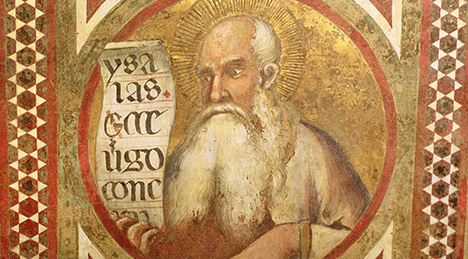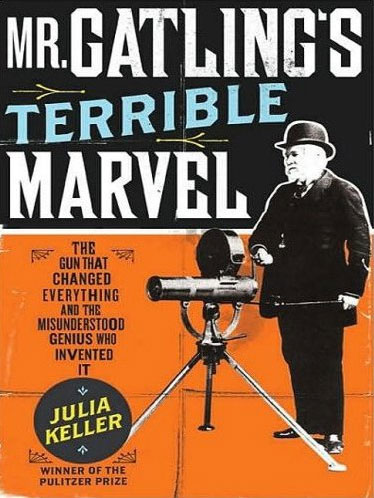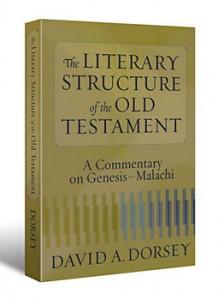Nov
29
2014

The Death of Deutero- and Trito-Isaiah
The heart of typology is representation, and representation is the heart of sacrifice.
A great deal of so-called theology seems to me to be a waste of time, breath and ink. Theologians and commentators insist on applying a “lens” to Scripture, or building a case from cherry-picked particulars or accumulations of fragmented data, when the answer to the debated question is staring right back at them. Literary structure should be the first recourse, not the last. When it comes to the Bible, literary structure is the label on the tin.
Continue reading
Comments Off | tags: Brueggemann, David A. Dorsey, Isaiah, Literary Structure, oikoumene, Peter Leithart, Systematic typology | posted in Bible Matrix, Biblical Theology, Quotes, The Restoration Era
Oct
26
2012

“Israel’s ministry was to purchase every single day with blameless blood. Every morning and evening enjoyed by the nations was paid for in Yahweh’s name.”
Part 1 | Part 2 | Part 3 | Part 4
After the spectacular stories of Balaam and Phinehas, it is no wonder the modern mind has problems when the Torah suddenly crunches its gears to speak once again in detail about offerings. To the higher critic, this is simply evidence of a hodgepodge of scrolls gathered together by an ignorant and hurried scribe. For the believer, it adds to the niggling sense that the Bible has an internal logic which neither your pastor nor any Christian book you have read so far seems to be able to solve, despite many valiant attempts.
Continue reading
Comments Off | tags: David A. Dorsey, Feasts, Numbers | posted in Bible Matrix, Biblical Theology
Oct
28
2009

Ignorant (willfully?) of ancient literary conventions, higher critics explained the carelessness of arrangement they thought was apparent in Old Testament books with fallacies like the JEDP theory. It turns out they were very wrong. James Jordan writes:
Continue reading
Comments Off | tags: Chiasm, David A. Dorsey, Higher Criticism, Isaiah, James Jordan, Literary Structure, Malachi, Matthew | posted in Biblical Theology
Jun
27
2009
or Silencing the Higher Critics

Yet more on literary analysis of the Bible as a ‘terrible marvel‘; a review of two books. As Warren Gage has commented, we are on the verge of a tremendously creative time in Biblical theology. But this to me seems also to be an element of scholarship returning home, older and wiser, from a wilderness of unbelief.
Genesis: The Story We Haven’t Heard
by Paul Borgman. Downers Grove, IL: Intervarsity Press, 2001. 252 pages.
The Literary Structure of the Old Testament: A Commentary on Genesis-Malachi
by David A. Dorsey. Grand Rapids, MI: Baker Books, 1999. 330 pages.
Reviewed by Timothy Paul Erdel, Ph.D., Archivist and Assistant Professor of Religion and Philosophy, Bethel College, Mishawaka, IN.
“I have been fascinated by the primal power of Old Testament stories for as long as I can remember. From my perspective, there is no clearer window on human character, no greater storehouse of hard and holy truths. Yet some tales are deeply disturbing. Phyllis Trible calls them ‘texts of terror.’ Even the most familiar passages may seem strangely distant. So I relish each time a preacher or teacher sheds new light on these ancient Hebrew narratives.
Continue reading
Comments Off | tags: Abraham, Babel, C. S. Lewis, Chiasm, Compromise, David A. Dorsey, Higher Criticism, Isaiah, Jeremiah, Literary Structure, Warren Gage | posted in Biblical Theology, Quotes
Jun
20
2009

or Typology: Deadly Weapon or game of Scattergories?
“Chiastic literary analysis has completely destroyed liberal literary criticism. Liberalism is in tatters, bleeding and dying. Liberalism cannot survive Dorsey’s chiastic proof of the total unity of Isaiah, for instance. Dorsey finds loads of 7-fold chiasms in the Bible. I’ve found scores more, quite independently. What Dorsey does not see is that these are recaps of the chiasm of the 7 days in Genesis 1. And that’s good, because it means he did not go through the Bible forcing passages into heptamerous chiasms. He just found them there, and others can see that these track Genesis 1 as ‘new creation’ passages.”
—James B. Jordan, A Reply on the Nature of the Psalter, Biblical Horizons blog, biblicalhorizons.wordpress.com, referring to David A. Dorsey, The Literary Structure of the Old Testament.
If chiastic literary analysis (along with typology as I posted recently) is such a powerful weapon against a modernist interpretation of the Bible, why are these methods of study shunned by those who oppose liberal theology? Why are theologians hauled over the coals for using it if it leaves the enemy in shreds?
Continue reading
4 comments | tags: David A. Dorsey, David Field, Liberal theology, Peter Leithart, Systematic typology, Typology, Warren Gage | posted in Apologetics, Biblical Theology, Totus Christus
Apr
15
2009
 “I began writing this book some ten years ago, although my interest in Hebrew literary structure goes back a decade before that. My fascination with the subject was kindled when I began teaching Old Testament courses in seminary. At that time I was struck by the apparent lack of order within many of the biblical books. Jeremiah seemed hopelessly confused in its organisation; so did Isaiah and Hosea and most of the prophets. Song of Songs and Ecclesiastes appeared to be in almost complete disarray, and even the more orderly historical books, such as Joshua and Kings, showed signs of strangely careless organisation. Why did the biblical authors write like this? I would never write a book, an article, or even a private letter with such carelessness of arrangement.
“I began writing this book some ten years ago, although my interest in Hebrew literary structure goes back a decade before that. My fascination with the subject was kindled when I began teaching Old Testament courses in seminary. At that time I was struck by the apparent lack of order within many of the biblical books. Jeremiah seemed hopelessly confused in its organisation; so did Isaiah and Hosea and most of the prophets. Song of Songs and Ecclesiastes appeared to be in almost complete disarray, and even the more orderly historical books, such as Joshua and Kings, showed signs of strangely careless organisation. Why did the biblical authors write like this? I would never write a book, an article, or even a private letter with such carelessness of arrangement.
I was intrigued by the possibility that the Hebrew authors might have organised their compositions according to literary conventions that were different from ours. I began to discover, over a period of years, that several structuring patterns rarely used by us were remarkably common in the books of the Hebrew Bible, particularly chiasmus (symmetry), parallelism, and sevenfold patterns. I was increasingly struck by how often these patterns had been utilised to arrange biblical books…
It was my mother who gave me a love for literature. She read to my brother Stephen and me regularly, from as early as I can remember. I still have many fond memories of those wondrous bedtime stories, whose structures — like the Bible — were designed for the ear, not the eye.”
David A. Dorsey, The Literary Structure of the Old Testament, p.9-10 (Preface).
Comments Off | tags: Chiasm, David A. Dorsey, Ecclesiastes, Hebrew, Isaiah, Jeremiah, Literary Structure, Old Testament, Song of Songs | posted in Quotes































